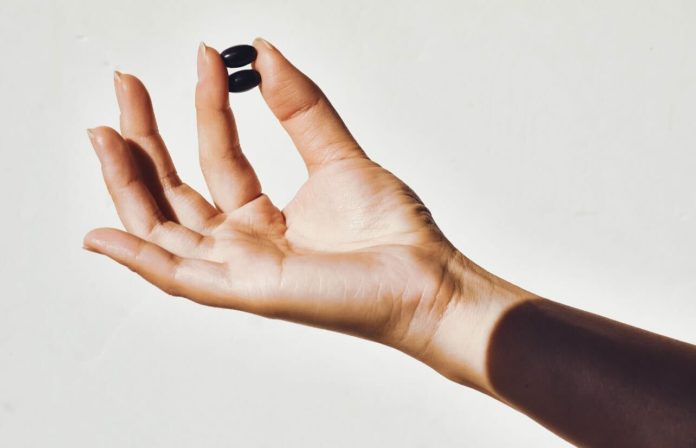On July 27, 2022, an article in the New York Times bluntly questioned whether Vitamin D was really good for bone health at all. The headline definitively states: Study Finds Another Condition That Vitamin D Pills Do Not Help.
While there is nothing wrong with questioning science, there is something wrong with this type of coverage. It encourages people to stop taking a supplement that is both protective of their health and which even supports their immune system’s proper function during a pandemic. These are strange times indeed.
Make no mistake, the media loves to cover negative stories about supplements. It both pleases the drug companies that advertise in their publications, and it inflames a base of readers. Those that disagree share it. Those that agree share it. Polarizing press sells.
So let’s drag out the basics of this coverage, so you don’t have to read the study they are reporting on – and the NYT article (which I chose not to link on purpose – let’s not give that one any more air time).
The VITAL study
The VITamin D and Omega-3 TriAL (VITAL) is an ongoing randomized clinical trial with almost 26,000 US men and women participants that seeks to answer questions about whether taking daily supplements of 2,000 IU vitamin D3 or 1 gram omega-3 fatty acids from fish oil reduces the risk of cancer, heart disease, or stroke in people who do not have a prior history of these illnesses.
But there’s no mention of bone health in this study. Why did the NYT cover negative results for Vitamin D as it relates to bone health in this study?
Now, that is an interesting question. Many large studies open their results up for ancillary study exploration. This helps us explore whether there could be another causal factor within the data, which has the potential to create greater impact with a single clinical trial.
What are ancillary studies in clinical trials?
Ancillary studies involve the collection or derivation of data for purposes that are separate from the main trial. They are becoming increasingly popular, especially with large clinical studies. The VITAL trial even has an application button on their site which encourages researchers to suggest and propose ancillary study topics.
What did this ancillary study suggest as it relates to vitamin D and bone health?
The results suggest that healthy adults without pre-existing bone health issues did not experience a lower risk of fractures when consuming 2,000 IU of vitamin D3 every day.
But how could this be? If vitamin D helps you absorb calcium, why might your bones not be any stronger than those who don’t consume it?
The answer is perhaps as complex as your diet and digestion.
- Vitamin D3 helps your body absorb calcium. It doesn’t necessarily tell that calcium where it needs to build strong bones with good tensile strength.
- Your body needs sufficient stores of other key nutrients to build healthy bones. The list includes: vitamin C, iron, and vitamin K2.
- The study doesn’t analyze the individual’s store of bone remodeling nutrients including fat soluble vitamins A, D, and K, nor other vitamins like vitamin C and minerals like iron.
So, having a broken bone with vitamin D consumption isn’t entirely surprising. In fact, if you consume a lot of vitamin D3 and you don’t have enough supportive nutrients in balance, you might actually build brittle bones. This is because you need the right supportive nutrients to build bones that can stand a little bending without breaking. This is called tensile strength. Think of calcium on its own. It’s essentially a powder. You can press it into tablets like chewable vitamins, but it remains chalky and can be broken somewhat easily.
To build strong bones, you need a sufficient supply of iron.
To ensure you have good tensile strength, you need sufficient collagen and vitamin C.
And to ensure that your bones are being consistently and properly remodeled for strength, you need adequate supplies of vitamins A, D3, and K2 in balance. Vitamin A stimulates osteoclasts which break away old bone. Vitamin D stimulates osteoblasts which help lay down new bone, and Vitamin K2 acts like a traffic cop, sitting in your soft tissues and keeping calcium from depositing where you don’t want it — in your joints, and your arteries – and instead placing it where you want it in your bones and teeth. Vitamin K2 is therefore a critical compound for circulatory health, joint health, and bone health.
For a deeper dive into why vitamins A, D, and K2 are all needed to create healthy bones while also keeping your soft tissues clear of inordinate amounts of calcium, I’ll draw your attention to a book by Dr. Kate Rheume Bleu titled Vitamin K2 and the Calcium Paradox: How a Little-Known Vitamin Could Save Your Life.
So How Much Vitamin D3 Should You Get Each Day?
The often recommended daily intake for Vitamin D is 20 mcg, which is equivalent to 400 IU. If you aren’t spending time outdoors with your stomach and inner arms exposed to sunrays during midday for at least 15 minutes, and if you have darker skin, you likely aren’t getting enough vitamin D.
In fact, a recent study published in Nutrition Research journal stated that the overall deficiency rate in adults was 41.6% with the highest rate seen among black people (82.1%), followed by Hispanics (69.2%). Deficiency was defined as ≤20 ng/mL (50 nmol/L). Most doctors agree that levels of at least 30 ng/mL is sufficient, though anti-aging experts recommend getting up to 80 ng/mL. Home blood tests from providers such as InsideTracker work well, or you can get the requisite test through your healthcare provider. It is important to test your levels so that you know how much vitamin D you should supplement with.
Given the incredible body of research available supporting the health benefits of vitamin D, taking a moderate supplement that delivers 400 IU (20 mcg) – 1000 IU (50 mcg) per day is both health promoting and completely safe. If you have lower levels of vitamin D and especially if you have dark skin or wear sunscreen – which blocks your body’s ability to make vitamin D — you may even need more.
So let’s all wear our critical hats when we see scientific research like this particular ancillary study that advises us to ditch well-researched vitamins. Our bodies do not exist in a vacuum. Nutrition is complex. If we focus on getting a varied, well balanced diet with a few key supplements, we’ll live longer, happier and healthier lives with a longer health-span.
Corinna’s Supplement Picks For Longevity & Healthy Bones:
Overall, I’m a big fan of highly absorbable supplements that I know will be easily integrated into my body’s systems. Below is a list of my favorites for longevity and healthy bones.
Omega-3: Omega-3 or Prenatal DHA by Örlö Nutrition (polar lipid for improved absorption)
Vitamin K2: Any brand is fine, though you should make sure it’s in the menaquinone-7 (MK-7) form for best absorption.
Vitamin D3: Immunity Boost by Örlö Nutrition (water soluble for improved absorption)
Collagen: Great Lakes Wellness Quick Dissolve Collagen (unflavored, easy to add to cold or hot beverages, highly absorbable). Use code “AGEIST” for a 20% discount.
Greens Supplement: MacroGreens or Athletic Greens
Probiotic: Healthy Trinity by Natren or Viome products. Use code “AGEIST” for $30 off.
RESOURCES:
VITAL Study Website
VITAL Ancillary Study On Supplemental Vitamin D3
Vitamin K2 and the Calcium Paradox: How a Little-Known Vitamin Could Save Your Life by Kate Rheume Bleu
Vitamin K2: The Missing Nutrient for Heart and Bone Health by Dennis Goodman, MD
Prevalence and correlates of vitamin D deficiency in US adults



